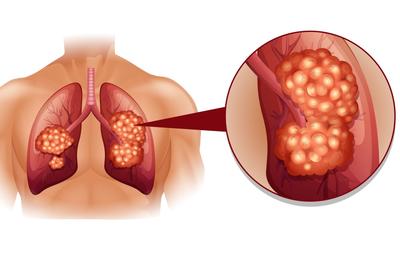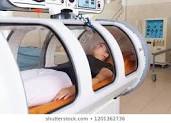
Diagnosed with Cancer? Your two greatest challenges are understanding cancer and understanding possible side effects from chemo and radiation. Knowledge is Power!
Learn about conventional, complementary, and integrative therapies.
Dealing with treatment side effects? Learn about evidence-based therapies to alleviate your symptoms.
Click the orange button to the right to learn more.
- You are here:
- Home »
- Blog »
- side effects ID and prevention »
- Atrial Fibrillation in Lung Cancer
Atrial Fibrillation in Lung Cancer

Atrial fibrillation in lung cancer is a serious long term side effect. And it should come as no surprise that radiation therapy increases the risk of atrial fibrillation (Afib) in lung cancer patients. While a potentially beneficial therapy, radiation can cause a number of short, long-term and late stage side effects.
The real surprise is that there are no conventional therapies shown to reduce this risk. Fortunately, there are evidence-based therapies shown to reduce this risk.
I am a long-term cancer survivor (different type of cancer) who struggles with a number of long-term and late stage side effects. Though I developed atrial fibrillation and heart damage, these side effects did not result from radiation therapy.
I have to go on record as saying that there may be good reasons why your oncologist wants you to undergo local radiation to your chest. In my experience, oncology is lousy at explaining the pros and cons of conventional therapies. Keep in mind that radiation-induced side effects can occur years after the actual therapy.
However, I would confirm the risks and benefits with him/her before undergoing any RT.
What are pros and cons for radiation therapy for lung cancer?
Pros:
- Effectiveness: Radiation therapy can effectively target and destroy cancer cells in the lungs, especially when the cancer is localized or has not spread extensively.
- Non-invasive: Unlike surgery, radiation therapy does not involve making incisions or physically removing tissue from the body, which can result in quicker recovery times and fewer complications.
- Preservation of lung function: Radiation therapy can be used to shrink tumors, alleviate symptoms such as shortness of breath, and improve lung function, which can enhance quality of life for patients.
- Adjuvant therapy: Radiation therapy can be used in combination with other treatments such as surgery or chemotherapy to increase the likelihood of successful treatment outcomes.
Cons:
- Side effects: Radiation therapy can cause side effects such as fatigue, skin irritation, difficulty swallowing, and lung inflammation. These side effects can vary depending on the dosage and duration of treatment, as well as individual patient factors.
- Damage to healthy tissue: While radiation therapy is targeted to cancerous cells, it can also affect nearby healthy tissue, potentially leading to long-term complications such as scarring or reduced lung function.
- Risk of secondary cancers: Radiation therapy itself can increase the risk of developing secondary cancers in the future, although this risk is generally low compared to the benefits of treating the primary cancer.
- Treatment duration: Radiation therapy typically requires multiple sessions over several weeks, which can be time-consuming and may require patients to travel to treatment centers regularly.
- Limited effectiveness for advanced cancer: Radiation therapy may be less effective for advanced lung cancer that has spread to other parts of the body, as it is generally more effective when targeting localized tumors.
I underwent local radiation therapy several different times for different reasons during several years after I was diagnosed with multiple myeloma. While I believe that radiation was effective for me, there’s no question that radiation can result in serious long-term side effects.
Because of my experience, I explain the healing benefits of hyperbaric oxygen therapy for anyone who has had radiation. Please read the study linked below.
My understanding is that HBOT is FDA approved but that you may need to have your oncologist prescribe it for you. I encourage you to begin HBOT as soon after your radiation as possible. Even if you don’t feel much if any internal damage
Have you been diagnosed with lung cancer? What stage? What symptoms? Let me know David.PeopleBeatingCancer@gmail.com
David Emerson
- Cancer Survivor
- Cancer Coach
- Director PropleBeatingCancer
Lung Cancer Radiation May Up AF Risk
“Radiation exposure to the pulmonary veins during radiotherapy (RT) for non–small cell lung cancer (NSCLC) raises the risk for atrial fibrillation (AF), according to new findings…
- Arrhythmia — with AF being the most common type — affects roughly 11% of patients following lung cancer RT.
- Given RT’s recognized impact on cardiac tissues over time, researchers hypothesized that the dosage affecting pulmonary veins might contribute to the observed increased rates of AF after RT.
- To investigate, researchers looked back at 420 patients with NSCLC (52% women, median age 70) undergoing definitive RT (± chemo) with modern planning techniques at 55 Gy in 20 once-daily fractions over 4 weeks.
- Most patients underwent treatment planning using volumetric modulated arc therapy (50%) or static gantry intensity-modulated RT (20%). Chemotherapy was administered in a minority of cases (33%).
- Pulmonary veins were contoured on planning CT scans, and dose metrics were calculated. The association between pulmonary veins dose and incidence of new AF was evaluated, with AF verified by a cardiologist…
Survivorship: Late Effects After Radiation for Lung Cancer
“Heart Problems
Radiation treatment to your chest can affect your heart. This can lead to different types of heart problems, including heart failure, high blood pressure, valve problems, and scarring or inflammation of the heart tissue.
- Your risk of heart failure depends on the amount of radiation you got and what other cancer treatments you had.
- When radiation treatment is planned, it is designed to avoid the heart as much as possible, but in many cases, it cannot be avoided altogether.
- You should have a yearly physical by your primary care provider. They should listen to your heart, check your blood pressure, look for signs of heart trouble such as swelling in your legs/feet, and check your cholesterol and blood sugar levels with a blood test.
- You should try to live a heart-healthy lifestyle, including regular exercise, not using tobacco, and eating a healthy diet.
- If you are at a high risk of heart problems based on your treatments, your provider may suggest an echocardiogram (heart ultrasound) to check heart function…”
Hyperbaric Oxygen Therapy and Radiation-Induced Injuries
“…All of these radiation injury effects can be have HBO2 to augment therapeutic responses for the patient. The effects of radiation can be early or delayed, but should a patient with skin, soft tissue including intra-oral or other mucosal surfaces (urogenital or GI)24, bony, or neural tissue are symptomatically changing after irradiation, then adjunctive HBO2 can be considered.25 In many ways the radiation induced hypovascularity is similar to the diabetes mellitus induced hypovascularity where HBO2 has also been shown to be beneficial where the cycling of hypoxia (while in the HBO2 chamber) and then the slow decay back to baseline hypoxia after treatment is stimulatory for neoangiogenesis.26″


